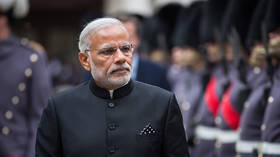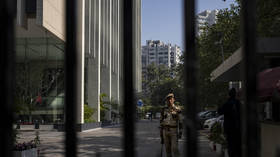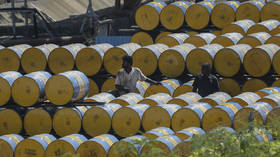India’s clash with the BBC is a warning of things to come

Recently, there has been outrage across India over a BBC documentary.
Titled ‘The Modi Question’, the program shines a critical light on what it alleges was the Indian prime minister’s role in anti-Muslim riots that shook the state of Gujarat in 2002.
Indian authorities reacted by banning the documentary and denouncing it as “colonial propaganda”. Such sensitivity is common in today’s India, which under Narendra Modi’s leadership has steered onto a pathway of Hindu nationalism, which has led the country to be more prone to outrage over international criticism and to become less “liberal” in nature.
Some weeks after the documentary’s release, the BBC in India came under investigation for alleged tax violations. The broadcaster’s response emphasized its status as a “trusted, independent media organization,” and coverage of the tax probe has implied that it is politically motivated. However, this row comes at a critical moment in geopolitics where Western countries are actively courting New Delhi as part of their Indo-Pacific initiatives. More specifically, their bid to use India and its massive economic potential as a strategic bulwark to contain China.
However, the question is how long the West’s honeymoon with New Delhi can last? Especially when, in current conditions, India may decide to pursue governance decisions which are not in harmony with the values the Western nations proclaim to uphold. After all, the tilt towards India is seen with a certain romanticism in Western countries, whose officials praise it as the “world’s largest democracy” and a partner with “shared values.”
The truth, though, is that they don’t truly see India as an equal. They hope, given the foundations of its political system, that India will one day be “the same” as they are, and anticipate a course of liberalization and political change under their guidance, similar to what was once expected from Russia and China. But, if India fails to follow that route, or continues to grow as an autonomous power which does not consent to Western dominance, the chances are that the West’s tolerance for the country, and especially for Modi’s government, will run out.
This brings us to the BBC. Indian authorities are right in describing the BBC as a “post-colonial” institution because that’s what it is. The BBC world service is not impartial at all, but an institution created with the imperialistic goal of projecting British influence overseas, paying special attention to the former dominions of the British Empire. The BBC is ideologically biased, and has unsurprisingly drawn criticism in India for its condescending coverage.
The UK looks at India with starry-eyed nostalgia. It does not see its century-long history of colonial rule over the subcontinent as a time of exploitation, oppression, violence and inequality. Instead, it tends to believe that it has done the country a favor by boosting its development, and that this history affords it a “special relationship” with New Delhi. Therefore, even though Britain’s Brexit ideology seeks substantial trade and financial benefits from India, the UK still believes that it has a right to interfere in its internal politics, with Modi’s nationalistic and centralized rule placing them on a long-term collision course.
Things are relatively stable now, despite this “row” over the documentary, but this poses the question – what happens when India becomes wealthy and powerful and does not eagerly accept the Western-centric political world order? Also, what if it seeks to be a geopolitical power in its own terms? What happens when Western countries begin to perceive India not as a partner in need of help and support, but as a rival in a similar vein to how they view China and, of course, Russia? What happens when the US-led Indo-Pacific initiative starts to appear not as something that would incorporate and help India, but something that could also potentially contain its military rise?
This BBC documentary is a reminder to India that the collective West seeks not to befriend it, but to use it, and in turn is not likely to accept an India which does not adhere to its political terms and conditions. India’s current foreign policy is often described as “strategic autonomy,” but in recent years the country has been overly friendly with the US to exploit mutual anti-China sentiment in a bid to gain economic opportunities for itself. At the same time, there has been a domestic political shift in India which orients it away from westernization. The West’s good will for New Delhi, a superpower of the future, will one day run out, and the agenda will shift towards containment. India needs to look at what is happening now with China and be ready when that day comes.
The statements, views and opinions expressed in this column are solely those of the author and do not necessarily represent those of RT.














